Low-Carb Foods for Vegans & Vegetarians:The Ultimate Guide
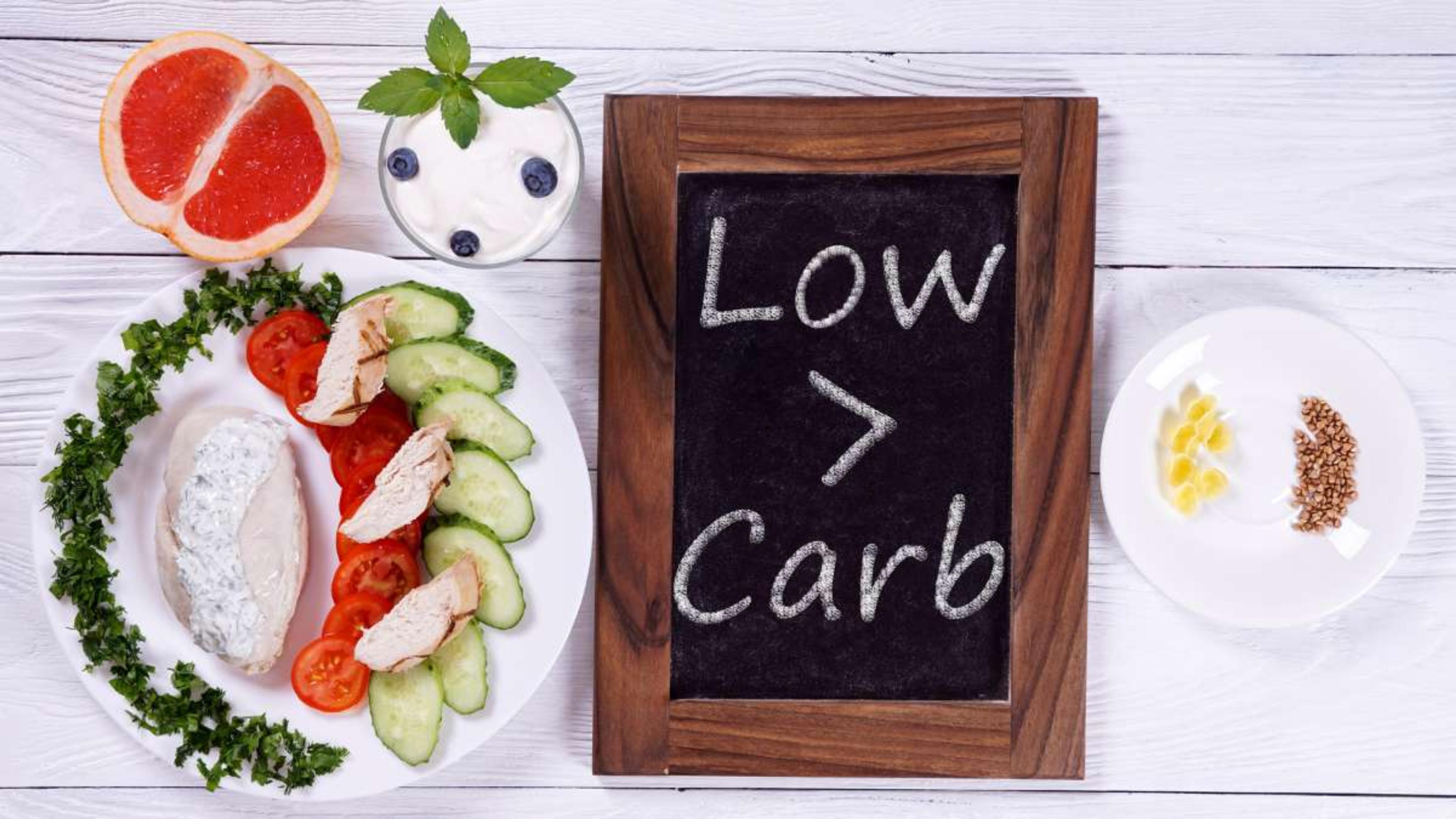
- Key Takeaways
- Basics of a Low-Carb Vegan Diet
- Low-Carb Foods for Vegans
- Tips for Following a Low Carb Vegan Diet
- Sample Low Carb Vegan Meal Plan
- Conclusion
- FAQs
Navigating a low carb lifestyle as a vegan isn't always straightforward. Did you know that some plant-based foods surprisingly pack in the carbs? This post will guide you through incorporating delicious, nutrient-dense low-carb options into your vegan diet.
Let's discover how to enjoy tasty meals without compromising your health goals!
Key Takeaways
- Incorporating low-carb plant-based proteins like tofu and tempeh into your meals can help you meet your nutritional needs while following a low carb vegan diet.
- Leafy greens and non-starchy vegetables are excellent options for a low carb vegan diet as they are nutrient-dense and low in calories and carbs.
- Nuts, seeds, and healthy fats like avocados provide essential nutrients and satiety on a low carb vegan diet.
- Counting carbs, using cooking substitutes, and experimenting with different cooking methods can make it easier to follow a satisfying low-carb vegan lifestyle.
Basics of a Low-Carb Vegan Diet
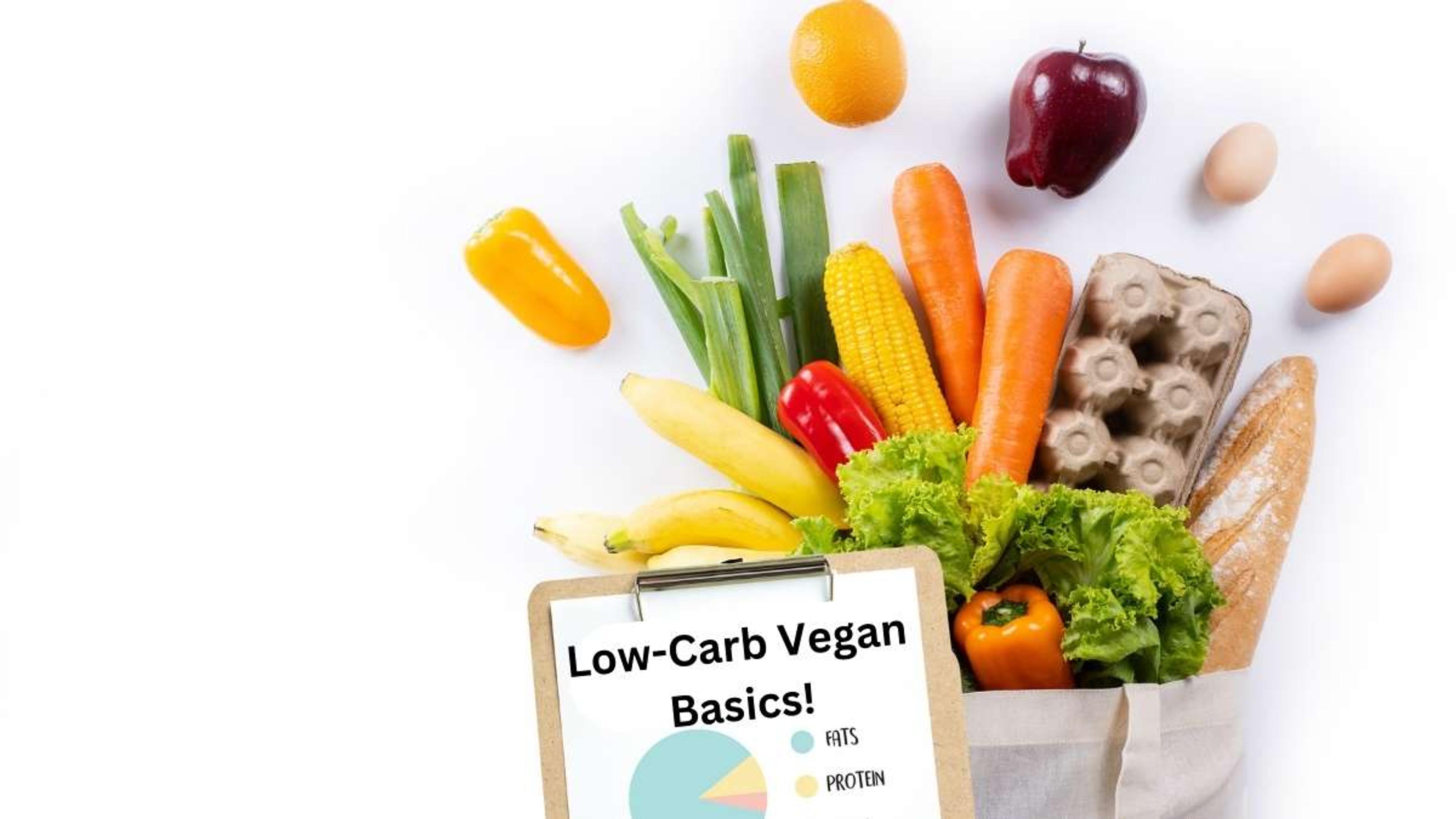
A low carb vegan diet focuses on reducing carbohydrate intake while still maintaining a plant-based lifestyle. This type of diet can be challenging for vegans who typically rely on foods like grains, legumes, and starchy vegetables for their nutrient needs.
However, there are ways to reduce carb intake as a vegan and still reap the benefits of a low carb diet, such as improved blood sugar control, weight loss, and lower risk of chronic diseases.
By incorporating more leafy greens and non-starchy vegetables, plant-based proteins, nuts and seeds, low carb fruits, and healthy fats into their meals, vegans can successfully follow a low carb eating plan.
Challenges of a High-Carb Vegan Diet
A high-carb vegan diet, often packed with around 75.2% carbohydrates, can present several health challenges that need careful consideration. Consuming a large amount of carbs can lead to rapid spikes and crashes in blood sugar levels, causing fatigue and hunger pangs shortly after eating.
This could potentially contribute to weight gain over time as it may trigger you to eat more frequently. The other issue revolves around nutritional imbalance; while being abundant in certain essential nutrients, the high-carb vegan diet tends to be deficient in others due to limited food selection like legumes and grains mostly replacing proteins and fats typically found in non-vegan diets.
Nutrients such as Omega-3 fatty acids or Vitamin B12 might not get enough attention that they require when focusing heavily on carb-rich foods. Furthermore, unhealthy choices within this diet pattern aren't excluded either - processed foods, sugars or gluten inclusive offerings might still form part of what is perceived as "Vegan", yet negatively impact overall health goals.
Ways to Reduce Carb Intake as a Vegan
Taking steps to reduce your carb intake as a vegan can be straightforward and simple.
- Opt for low-carb plant-based proteins: Foods like tofu and tempeh are high in protein but low in carbs, making them ideal for a low-carb vegan diet.
- Choose non-starchy vegetables: Broccoli, cauliflower, asparagus, green beans, and eggplant are both nutritious and lower in carbs than many other veggies.
- Include more healthy fats: Coconut oil, olive oil, nuts like almonds and walnuts, and seeds such as chia contribute essential nutrients without adding too many carbs.
- Limit your legume intake: While they are rich in protein, legumes can be relatively high in carbs. Moderation is key here.
- Focus on whole foods rather than processed ones: Whole vegetables and grains tend to contain fewer carbs than their processed alternatives.
- Consider fortified foods or supplements (if needed); while not directly reducing carbs, this ensures obtaining the nutrients you need without resorting to higher-carb sources.
- Utilize herbs and spices for flavor rather than sauces or dressings that could be high in carbohydrates.
Benefits of a Low-Carb Vegan Diet
A low carb vegan diet offers numerous health benefits and improves overall well-being. It promotes weight loss by reducing carbohydrate intake and increasing the consumption of nourishing, plant-based foods.
The inclusion of leafy greens, nuts, seeds, berries, tofu and other low-carb foods provide an array of necessary nutrients while keeping calories in check. This type of diet can also stabilize blood sugar levels and lower blood pressure because it typically includes fewer processed foods that can spike insulin levels.
For individuals with type 2 diabetes or those seeking to improve cardiovascular health, a study has shown significant improvement in their conditions when following this approach to eating.
By adopting a low carb vegan lifestyle not only do you benefit your body but additionally contribute towards more sustainable food choices for the environment.
Low-Carb Foods for Vegans
Leafy greens and non-starchy vegetables are excellent low carb options for vegans due to their high nutrient content and low calorie count.
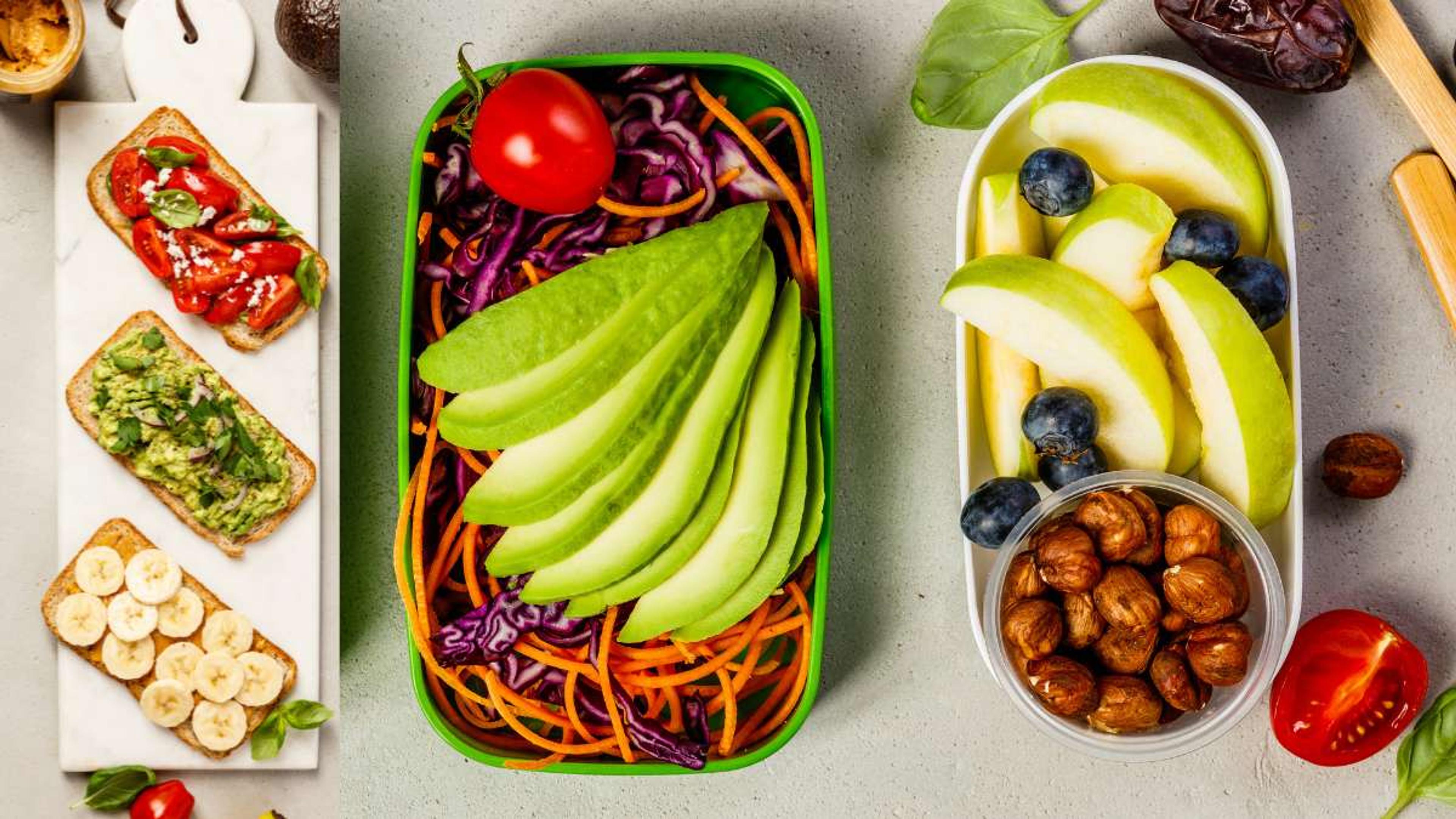
Leafy Greens and Non-Starchy Vegetables
Leafy greens and non-starchy vegetables are excellent choices for a low-carb vegan diet. These vegetables, such as broccoli, cauliflower, mushrooms, peppers, and zucchini, are low in calories and carbohydrates but packed with essential nutrients.
You can also include arugula, cabbage, spinach, and kale in larger quantities as they have lower carb content. Green vegetables generally have fewer carbs compared to colorful ones.
Even carrots and pumpkin can be part of your low-carb or vegan diet since they are not considered starchy vegetables. Incorporating these leafy greens and non-starchy veggies into your meals will provide you with fiber, vitamins, minerals while keeping your carb intake under control.
Plant-based Proteins
Plant-based proteins are an essential part of a low-carb vegan diet. They provide the necessary building blocks for muscle growth and repair, as well as other vital functions in the body.
Tofu is one popular option, containing nearly 9 grams of protein per 100 grams. It's also a good source of healthy fats. Other plant-based protein sources include legumes like chickpeas and lentils, which offer a satisfying texture and pack a nutritious punch.
Nuts and seeds, such as almonds and chia seeds, are rich in protein too. Incorporating these plant-based proteins into your meals will help you meet your nutritional needs while following a low-carb vegan lifestyle.
In addition to their protein content, plant-based proteins come with added health benefits. Research shows that individuals who follow a plant-based diet have lower risks of developing chronic diseases such as diabetes and cardiovascular disease.
Nuts and Seeds
Nuts and seeds are an excellent addition to a low-carb vegan diet. They provide a good amount of protein and healthy fats, making them a satisfying snack or ingredient in various dishes.
Hemp seeds, for example, contain an impressive 25 grams of protein and just 4 grams of net carbs per half cup serving. Pecans, macadamia nuts, and Brazil nuts are also great options as they have lower carb content compared to other varieties.
Additionally, chia seeds are lower in carbs while still offering essential nutrients. They can be sprinkled on top of salads or added to smoothies for an extra nutritional boost. So go ahead and include these nutritious powerhouses into your low-carb vegan meals!
Low-Carb Fruits
Watermelon, strawberries, and cantaloupe are excellent choices for those following a low carb vegan diet. Watermelon is particularly impressive with its extremely low carb content, making it the top pick among fruits.
Strawberries and cantaloupes also have relatively low carbohydrate levels, making them suitable options for those watching their carb intake. However, it's important to note that peaches, raspberries, and oranges have slightly higher carb content compared to the previously mentioned fruits.
Another fruit worth mentioning is avocado - although technically a fruit - it has relatively low carbohydrates and provides healthy fats as well.
Healthy Fats
Healthy fats play a crucial role in a low carb vegan diet. They provide essential nutrients and help keep you satiated throughout the day. Good sources of healthy fats for vegans include avocados, nuts (such as almonds and walnuts), seeds (like chia seeds), and oils (such as olive oil and coconut oil).
These fats are not only delicious but also offer numerous health benefits, such as supporting cardiovascular health and reducing inflammation. Incorporating these healthy fats into your meals can add flavor and richness while keeping your carb intake in check.
It's important to remember that while fat is an important part of a low carb vegan diet, moderation is key to maintain a well-balanced approach to nutrition.
Low-Carb Vegan Substitutions and Fortified foods
Low carb vegan substitutions offer alternatives that are both low in carbohydrates and animal-free. These substitutions can include plant-based proteins like tofu, tempeh, and seitan, which provide a good source of protein without the high carb content found in many meat substitutes.
Additionally, fortified foods can be beneficial for those following a low-carb vegan diet as they often contain essential nutrients like vitamin B12 that may be lacking in a plant-based diet.
Fortified plant milks, cereals, and nutritional yeast are examples of these fortified food options.
Consider Supplements (if needed)
Supplements can be beneficial for vegans to ensure they meet their nutrient needs. Since vegans are at a higher risk of certain nutrient deficiencies, such as protein, vitamin D, calcium, iron, and zinc, supplements can help bridge the gap.
This is especially important for those following low-carb vegan diets. In some cases, specific supplements like B12 may be necessary to enhance nutrient intake. By considering supplements when needed, vegans can ensure they are getting all the essential nutrients their bodies require.
Tips for Following a Low Carb Vegan Diet
Count your carbs to ensure you stay within your desired range, and incorporate cooking and preparation tips to make low carb options more flavorful and satisfying.
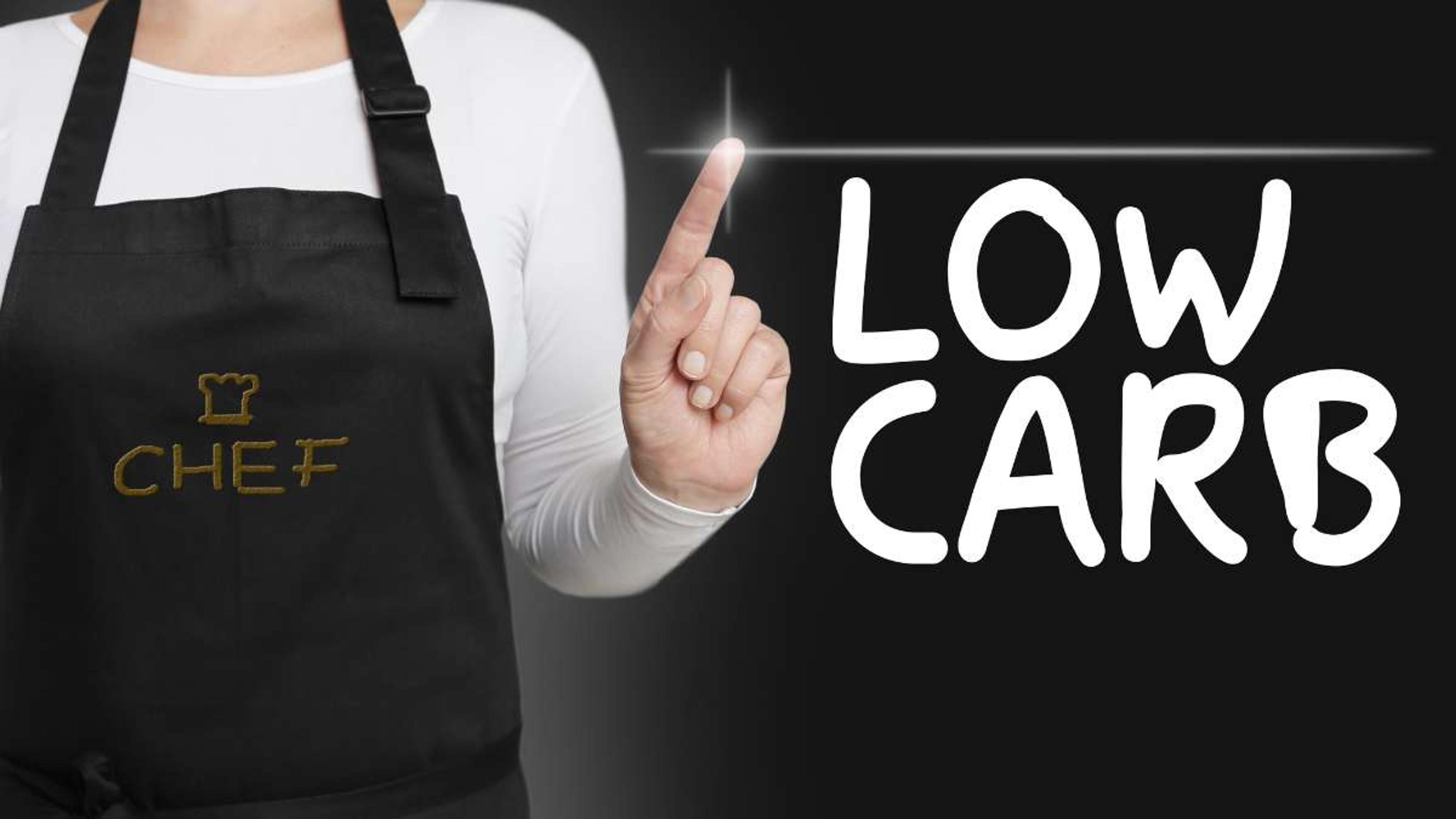
Counting carbs
Counting carbs is an essential part of following a low-carb vegan diet. It allows individuals to track their carbohydrate intake and manage blood sugar levels, especially for those with diabetes.
Different foods contain varying amounts of carbohydrates, so it's important to be mindful of the carb content in each meal or snack. A low-carb diet typically involves consuming under 100-150 grams of carbs per day, but some vegan diets may limit carb intake even further.
Different foods contain varying amounts of carbohydrates, so it's important to read food labels and educate yourself about which foods are higher in carbs than others.
By carefully counting carbs and choosing low-carb vegan recipes, individuals can plan their meals effectively and work towards their weight loss goals while maintaining stable blood sugar levels.
Cooking and Preparation tips
To successfully follow a low carb vegan diet, it's important to consider cooking and preparation tips that make it easier to stick to your dietary goals. Here are some helpful tips:
- Use non-stick cooking spray or a small amount of olive oil instead of butter or other high-fat oils.
- Experiment with different spices and herbs to add flavor without adding carbs or calories.
- Try roasting vegetables like broccoli, cauliflower, asparagus, and green beans for a delicious and low carb alternative to steaming or boiling.
- Opt for baking or grilling tofu instead of frying it in oil for a lower calorie and healthier option.
- Include plant-based proteins such as chickpeas, lentils, and edamame in your dishes for added nutrition.
- Incorporate nuts and seeds like almonds, walnuts, chia seeds, and macadamia nuts into your meals for healthy fats and protein.
- Choose low carb fruits like berries which are packed with antioxidants and have a lower glycemic index compared to other fruits.
- Utilize coconut oil in your cooking instead of vegetable oils as it contains healthy fats that promote satiety and can aid in weight loss.
- Make use of dairy alternatives like coconut yogurt or soy milk when following a low carb vegan diet.
- Meal prep ahead of time to ensure you have healthy low carb options readily available throughout the week.
Dining out tips and recommendations
Eating out can be a challenge when following a low-carb vegan diet. Here are some tips and recommendations to help you navigate the dining experience:
- Research restaurants in advance that offer low - carb vegan options.
- Look for dishes that feature non-starchy vegetables, leafy greens, and plant-based proteins.
- Ask your server about ingredient substitutions or modifications to make dishes lower in carbs.
- Choose grilled, baked, or steamed preparations instead of fried or breaded options.
- Opt for dressings and sauces on the side to control your intake of added sugars and carbs.
- Skip the bread basket or ask for a veggie - based alternative like cucumber slices or celery sticks.
- Consider ordering a few side dishes instead of a traditional entree to create a low - carb meal.
- Be mindful of hidden sources of carbs like sauces thickened with flour or starchy binders in veggie burgers.
- Enjoy beverages like water, unsweetened tea, or coffee instead of sugary drinks or alcohol.
- Don't be afraid to ask questions about how dishes are prepared and if they contain any hidden animal products.
Sample Low Carb Vegan Meal Plan
Here is a sample low carb vegan meal plan to help you get started on your low-carb journey.
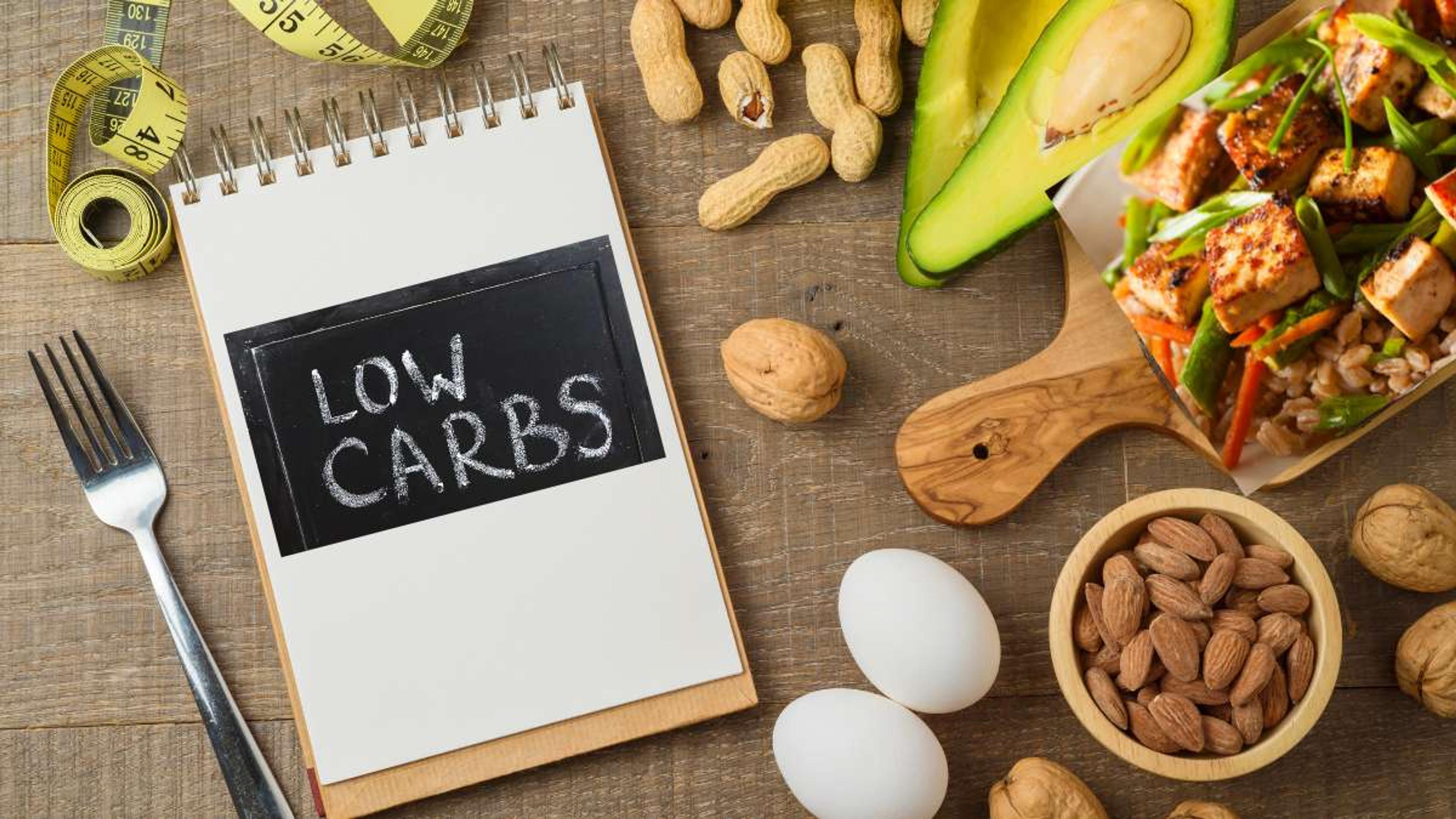
Breakfast ideas
Start your day off with a low-carb vegan breakfast that will keep you energized and satisfied until lunchtime. Try a delicious tofu scramble made with spices, vegetables, and a side of avocado for some healthy fats.
If you prefer something sweet, enjoy a bowl of chia seed pudding topped with berries and almond slices. For those following the vegan keto diet, indulge in a breakfast bowl filled with full-fat coconut yogurt, nuts, seeds, and unsweetened shredded coconut.
There are plenty of options to choose from that will fit your dietary needs while still providing essential nutrients to start your day right.
Lunch and dinner recipes
The sample low-carb vegan meal plan offers a variety of delicious and nutritious lunch and dinner recipes. For lunch, you can enjoy dishes like roasted vegetable salad with tofu, cauliflower curry with chickpeas, or a colorful stir-fry with green beans and asparagus.
These recipes are packed with plant-based proteins and leafy greens to keep you feeling satisfied throughout the day.
When it comes to dinner options, the sample meal plan includes raw vegan dishes that are low in carbohydrates. You can indulge in a refreshing zucchini noodle bowl with avocado pesto, or try a hearty salad stuffed with dark leafy greens, berries, and walnuts.
If you're craving something warm and comforting, there are also options like vegan chili or creamy cauliflower soup.
Snack options
Lupini beans and lentils are excellent snack options for low-carb vegans. Lupini beans provide a whopping 25 grams of protein and 11 grams of net carbs per cup, while lentils offer 18 grams of protein and 24 grams of net carbs per cup.
These high-protein snacks can help satisfy hunger cravings without derailing your low-carb vegan meal plan. It's important to choose snacks that fit within the parameters of the diet and avoid high-carbohydrate foods.
Conclusion
In conclusion, adopting a low-carb vegan diet can offer numerous health benefits and challenges. By focusing on nutrient-dense foods such as leafy greens, plant-based proteins, nuts, seeds, and healthy fats, individuals can successfully reduce their carb intake while maintaining a balanced vegan lifestyle.
With careful planning and creativity in the kitchen, it is possible to enjoy delicious low-carb meals that support weight loss goals and promote overall well-being.
FAQs
1. What are some examples of low carb foods for vegans?
Some examples of low carb foods for vegans include tofu, tempeh, seitan, leafy green vegetables, cauliflower, zucchini, and almond or coconut flour.
2. Can a vegan diet be low in carbs?
Yes, it is possible to follow a vegan diet that is also low in carbs. By focusing on plant-based protein sources and incorporating non-starchy vegetables into meals, individuals can create a low carb vegan meal plan.
3. Are there any challenges with following a low carb vegan diet?
One challenge of following a low carb vegan diet may be ensuring an adequate intake of essential nutrients such as vitamin B12 and omega-3 fatty acids. It's important for vegans to incorporate fortified foods or supplements to meet these nutritional needs.
4. What are the potential benefits of a low carb vegan diet?
A low carb vegan diet may help with weight management, blood sugar control, and reducing the risk of certain chronic diseases such as heart disease and type 2 diabetes. Additionally, it can promote the consumption of nutrient-dense plant-based foods.

